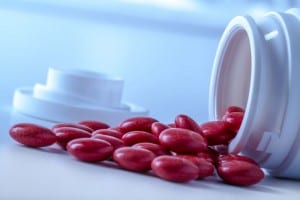After decades of clinical drug trials involving placebos,Placebo pills now have too many side effects. We need a second generation placebo pill the pharmaceutical community is wondering if it is the right time to introduce a second generation placebo. It has been well documented that the current generation of placebo has many side effects, sometimes causing the patient to stop taking it resulting in alterations of the statistical results.

Additionally many sugar pills are coated with material that contains gluten, causing distress for over 89% of the American population that has gluten sensitivity. Placebo capsules utilize gelatin and can cause problems for vegetarians and religious groups requiring animal products to be Kosher or Halal certified.
Spokesman for Big Pharma, Richard Crumpacker, says virtually every major drug company is anxious to have a second generation placebo. However not every company wants one with fewer side effects. Many are clamoring for a placebo with greater side effects. The ethics of designing a placebo with greater side effects is somewhat problematic, but Crumpacker thinks the details can be worked out to suit everyone.
One issue is the ethics of using a double blinded clinical trial to pit one placebo against another placebo to treat a medical condition where neither cohort receives a medicine that may actually help them. The study could involve treatment of a malady that is widespread and rarely fatal such as low libido in the female. It might be best to use patients who have previously participated in trials and received a placebo that caused debilitating symptoms. These patients could then be divided into two arms to either receive the old placebo or the second generation placebo. The
results should clearly show which placebo provides more satisfying side effects for either the patient or the drug company.
A placebo that has more side effects would help pharmaceutical companies give more robust data confirming a new medicine’s side effect profile was superior to placebo and thus useful to patients. It is anticipated to reduce the investigational time by half and help Big Pharma make an estimated $45B in the first year of use